Lifestyle
Lesbian Bars Were Dying. Now They’re Making a Comeback
Published
7 months agoon
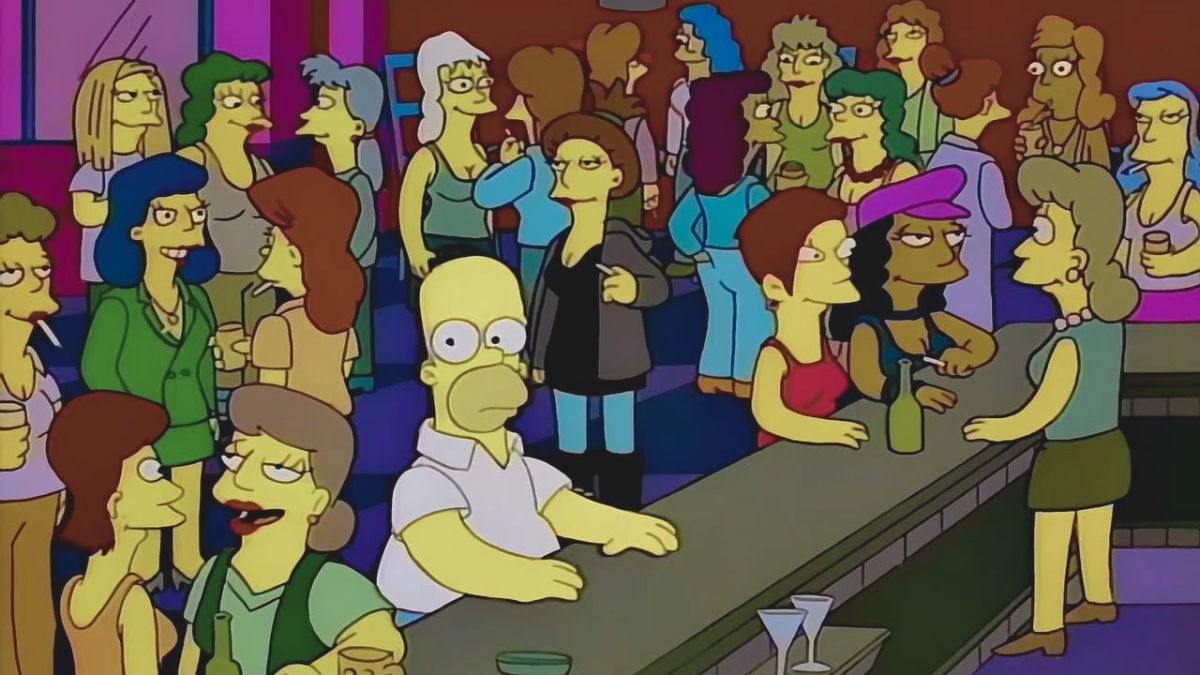
The buzz on the headlines these past few years makes it impossible not to notice: “Only 21 lesbian bars remain in America,” or “The rise and fall of America’s lesbian bars,” and “Why lesbian bars are disappearing.”
The once-thriving niche of lesbian bars has indeed dwindled. The ones that remain have become clandestine tourist destinations littered around the heartland. These last bastions of the lesbian community are now few and far between.
However, we see a glimmer of hope with recent developments. It could be that grassroots campaigns are poised to save lesbian bars from the brink.
Let’s back up a little.
The origin of lesbian bars
If you’re a fan of Moulin Rouge (or French history, I guess), you might know a bit about the inception of the modern lesbian bar. Artist Toulouse Lautrec often chronicled the lesbian nightlife in turn-of-the-century France. Bars like Le Rat Mort were owned and frequented by lesbians.
This phenomenon spread to other areas of high society in the early 20th century. In Weimar Germany, lesbian entrepreneur Elsa Conrad owned multiple such bars. Bars for women were a rarity in the US at the time, but the upper-crust Cafe des Beaux-Arts, which operated in New York from 1911 to 1921, is cited as an early example.
Prohibition and its aftermath
When we talk about the modern history of lesbian bars, the clock usually starts after Prohibition’s repeal in 1933. Bars like Roselle Inn in Chicago and Mona’s in San Francisco opened shortly thereafter.
It’s worth noting, however, that lesbian bars truly started to pop up during Prohibition. Where women had previously been legally discouraged from drinking, the total prohibition of alcohol was ironically an expanding force. Women could drink freely in speakeasies, and even own them.
The lesbian bars that sprang up after Prohibition were the offspring of the lesbian speakeasies that came before, such as Eve’s Hangout, which was shut down after a 1926 police raid.
The golden age of lesbian bars
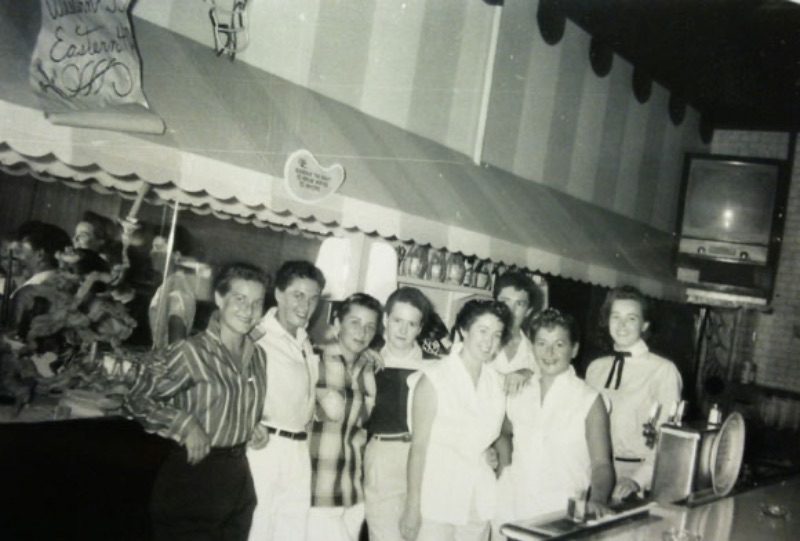
Lesbian bars and communities continued to grow, aided by the growth of cities and economic prosperity that followed World War II. Bars of this era still faced plenty of threats. Gay activity was still criminalized, organized crime was eager to capitalize, and internal debates split the community in twain.
In the ‘50s, de facto segregation and economic inequality kept many Black lesbians out of major lesbian bars. So did rigid attitudes about lesbian coupling built around butch/femme (or stud/femme) binaries.
Gay rights!
The first lesbian political organization, the Daughters of Bilitis, was formed in 1955. This was an early motion in the broader LGBTQ+ rights movement, which shone a national spotlight on lesbian and gay communities.
As the movement grew throughout the ‘60s, so did identification with/interest in lesbianism. As lesbian feminism developed in the ‘70s, lesbian bars became activist spaces in addition to social ones. By the ‘80s, there were over 200 lesbian bars nationwide.
There’s just one problem, and it’s a problem that emerges any time social spaces become political ones: politics create conflict. Divisions bubbled over who should and shouldn’t be included in lesbian spaces, from trans women to straight “political lesbians.” This fed into the damaging notion that “lesbian” itself was an exclusionary term.
The slow, painful fall
These divisions persisted, but lesbian bars remained fairly prevalent throughout the ‘80s and ‘90s. New movements led to new expansions. The Combahee River Collective helped open doors for lesbians of color. The community was ravaged by the AIDS crisis, but activism on that front helped bring the broader LGBT community together. By the mid-’90s, the Lesbian Avengers were bringing lesbian issues to the forefront of the community.
So, what did kill the lesbian bar? 9/11? The recession? Is it somehow Ellen’s fault?
The truth is, there was no one incident that sent lesbian bars into freefall. The more society as a whole accepted lesbians, the more patronage for these tight-knit neighborhood bars dwindled.
Meanwhile, over the course of the ‘00s, people kind of stopped meeting each other in person. The social role that lesbian bars once played could now be fulfilled much more accessibly by online forums, and later social media.
Statistics show that interest in the “lesbian” label itself may have declined in the ‘00s and ‘10s as well. Post-lesbian discourse has tended to frame the label as too exclusive. While the broader LGBTQ+ community experienced substantial growth in the 21st century, the lesbian community didn’t share in the majority of those gains.
The ravages of COVID-19
Articles about the dramatic decline in lesbian bars started to pop up in the late ‘10s. In 2019, it was estimated that only 15 such bars remained; in fact, there were 21. A string of closings occurred throughout the 2010s as business dwindled and rents increased.
When COVID hit, activists like Erica Rose and Elina Street sounded the alarm. Rose and Street initiated the Lesbian Bar Project, a fundraising campaign aimed at preserving the remaining bars.
Lincoln, NE’s Panic Bar closed in November 2020. In Philly, Toasted Walnut shuttered in February 2021. Even as the Lesbian Bar Project and other campaigns shone a national light on the issue, it seemed like the institution was quickly becoming a thing of the past.
But wait, there’s more?
A confluence of factors led to increasingly dire conditions for the country’s remaining lesbian bars. Pandemic-era restrictions were the final straw for many. But then, something shifted.
See, the pandemic may have kept us apart from each other, but it also reminded us how much we miss sharing a space. As restrictions were lifted, grassroots movements started to form dedicated to providing new, in-person social spaces for lesbians.
The lesbian bar revival
As the tireless work of the Lesbian Bar Project kept the remaining bars afloat, social groups and pop-ups started to form across the country. Lesbian Social Detroit. SHELiFE in Miami. Sip City Mixer here in Philly.
These groups coordinate regular events that go beyond the narrow scope of a bar: picnics, beach parties, sporting events. At the same time, they reflect a growing, vibrant, and (contrary to the popular stereotype) inclusive lesbian community nationwide.
As You Are in DC began as a pop-up series, but has now set up a permanent home. The Sports Bra, the first women’s sports bar, is now open in Portland, where another lesbian bar (Doc Marie’s) is opening just this week.
You can thank Lesbian Bar Project for their tireless work keeping remaining lesbian bars alive. You can also thank the internet which, once thought a detriment to the lesbian label, has now invited a new generation of lesbians to flourish.
Looking ahead, more of these pop-ups are trying to set up brick-and-mortar locations. Dave’s Lesbian Bar in Queens is fundraising at its monthly events; so is Hot Donna’s in LA.
Thanks to a renewed focus on community organizing and mutual aid, things are finally looking up for the humble lesbian bar.
You may like
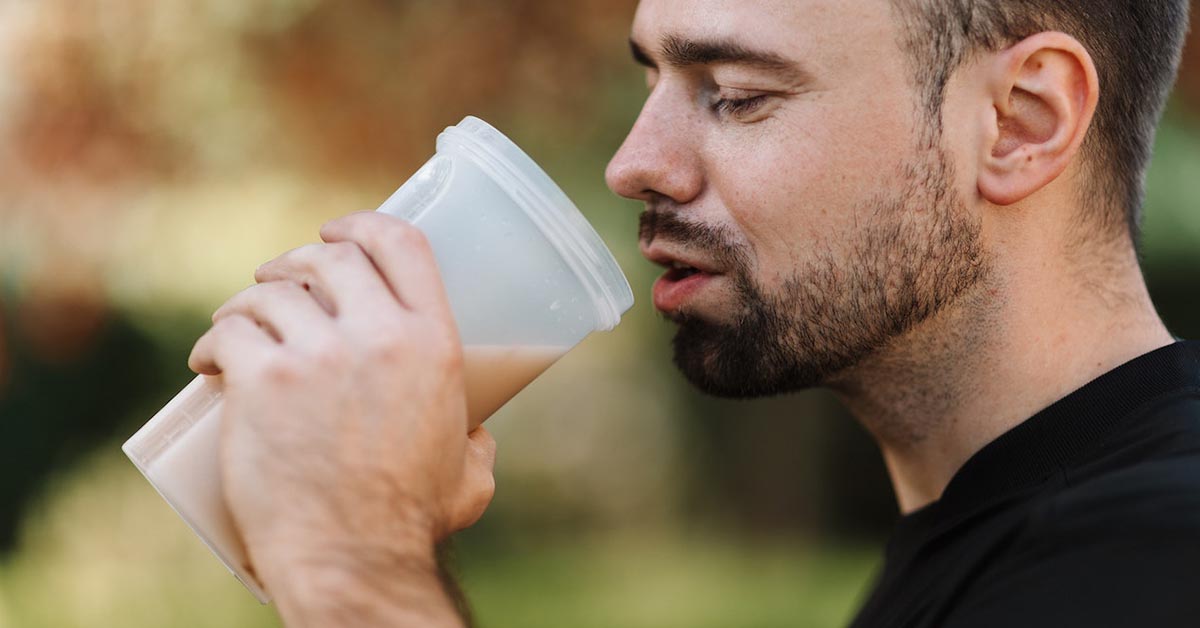
Many people are trying to add protein shakes to their diet for a quick, nutritious boost. In fact, data reveal that the number of high-protein drinks increased by 122% from 2020 to 2024.
The good news? There’s no shortage of high-quality, clean-label protein shakes in 2025. Here are the top 10 protein shakes to consider, whether you’re looking for a plant-powered blend, a whey-based protein shake, or something you can grab-and-go on busy days.
1. Optimum Nutrition 100% Gold Standard Whey

First on our list of top 10 protein shakes Optimum Nutrition 100% Gold Standard Whey in Chocolate Malt. This classic whey-based protein powder offers a blend of whey isolate, concentrate, and hydrolyzed whey. This option is also one of the most widely used and reviewed powders on the market.
Pros:
- Provides 24g of complete protein per scoop
- Easy to mix, widely available
- Good taste
Cons:
- Contains dairy (not suitable for vegans)
- Some versions use artificial flavors/sweeteners
2. Dymatize ISO100

Next, we have Dymatize ISO100 Whey Isolate (Hydrolyzed). This whey isolate + hydrolyzed whey protein powder is designed for faster absorption, lower lactose content, and leaner macro (low fat/carbs). It comes in a variety of delicious flavors, including collaborations with Dunkin’ and Pebbles cereal.
Pros:
- Easier digestion and faster absorption
- Low in fat and carbs
- Efficient protein per serving
Cons:
- More expensive compared to basic whey powders
- Still dairy-based
3. Transparent Labs 100% Grass-Fed Whey Protein Isolate

If you’re looking for a clean protein shake, you may want to consider Transparent Labs 100% Grass-Fed Whey Protein Isolate. This premium whey isolate from grass-fed cows is marketed as a “clean label” powder. That means it has minimal ingredients and transparent sourcing. No wonder it often appears in top 10 protein powder lists.
Pros:
- High protein content per serving
- Clean, minimal-ingredient formulation
- Good taste and mixability
Cons:
- More expensive than standard powders
- Still dairy-derived
4. KOS Vegan Superfood Protein Powder

If you’re on a plant-based diet or simply someone who would rather have vegan ice cream than a full-dairy one, try KOS Vegan Superfood Protein Powder. This plant-based protein powder is a popular choice for vegan or vegetarian users or those avoiding dairy. It’s also known for smoother taste among vegan powders.
Pros:
- Suitable for vegetarians, vegans, lactose-intolerant, or people avoiding dairy
- Often lighter on digestion for those sensitive to dairy or lactose
- Easy to include in shakes with other whole-food ingredients
Cons:
- Plant proteins often have fewer BCAAs than whey
- Some plant powders may have a “grittier” or “earthy” aftertaste
5. OWYN Plant-Based Protein Shake

Next on our list of top 10 protein shakes is OWYN Plant-Based Protein Shake. It’s a ready-to-drink or ready-to-mix plant-based protein shake, making it a convenient option for those on the go. Many of its options have no dairy, soy, or gluten, making it a good choice for those who have dietary restrictions. Its grab-and-go packaging also makes it convenient for busy people trying to maintain a healthy lifestyle.
Pros:
- Vegan and often allergen-friendly
- Ready-to-drink format saves time and is very useful for busy days
- Often balanced for general nutrition
Cons:
- Because it’s plant-based, one may require slightly higher intake to match whey
- Some users report “earthy” or “neutral” taste
6. Orgain Organic Vegan Protein Powder

Another plant-based protein powder on our list, Orgain Organic Vegan Protein Powder uses a blend of pea, rice, and seeds. Its ingredients list makes it a good option not only for vegans but also for lactose-free diets. If you’re looking for a protein powder that can be easily incorporated into plant-based meals, this is worth a try.
Pros:
- Suitable for vegans, vegetarians, and those with lactose intolerance
- Most variants are free from soy, gluten, and common allergens
- Flexible for mixing
Cons:
- May have lower absorption or incomplete amino-acid profiles
- Sometimes the texture or taste is less smooth than whey
7. Isopure Low Carb Whey Isolate

Also on our list is Isopure Low Carb Whey Isolate, which, according to its website, allows you to “pack in high-quality protein, without packing on the carbs.” This Whey-isolate powder low in carbs and fat, making it useful for lean-cutting diets, weight management, or those wanting lean protein with minimal extras.
Pros:
- Low-carb and low-fat
- Helps with calorie control
- Good for people trying to stay lean while meeting protein needs
Cons:
- Not suitable for vegans or lactose-intolerant
- Isolate tends to cost more than concentrate
8. NGX Bodyfuel Vegan Protein Powder

NGX Bodyfuel Vegan Protein Powder, meanwhile, takes pride in being “science-backed and plant-powered.” This vegan-friendly option doesn’t have GMOs, bulking agents, or fillers. It also has zero sugar but is still packed with flavor, making it a good option for those who want the best of both worlds.
Pros:
- 100% plant-based
- Vegan-friendly alternative to whey
- Protein content makes it competitive with many whey powders
Cons:
- Often more expensive
- Amino-acid completeness can be lower vs. whey
9. SlimFast High-Protein Shakes

Another popular item on our list is SlimFast High-Protein Shakes. These ready-to-drink protein shakes are aimed at weight management or convenience. That said, they’re extremely useful for meal replacement or supplementing dietary protein. Many reviews mention how people love these shakes’ flavor and how they help curb hunger and cravings.
Pros:
- No mixing needed
- Good for weight management or busy schedules
- Useful as quick meal
Cons:
- May have sweeteners or fillers
- Less “clean” than pure powders
10. Ghost Whey Protein Powder

Last but not least on our top 10 protein shakes list is Ghost Whey Protein Powder. This flavored whey protein powder often mentioned in “best-tasting” 2025 protein powder roundups, for those who value flavor as well as protein content.
Pros:
- High bioavailability
- Complete amino-acid profile
- Reputed for good taste and user enjoyment
Cons:
- Dairy-based, depending on flavor
- May contain artificial sweeteners or additives
There you have it! The top 10 protein shakes in 2025. Bear in mind, though, relying heavily on protein shakes isn’t the goal. While they’re convenient and effective supplements, they can’t replace the benefits of a balanced diet, proper exercise, and good-quality sleep. Think of these shakes as support and not the foundation of your overall wellness routine.
Business
Top Marketing Podcasts for 2025 You Should Be Following Today
Published
2 months agoon
October 17, 2025By
Skylar Lee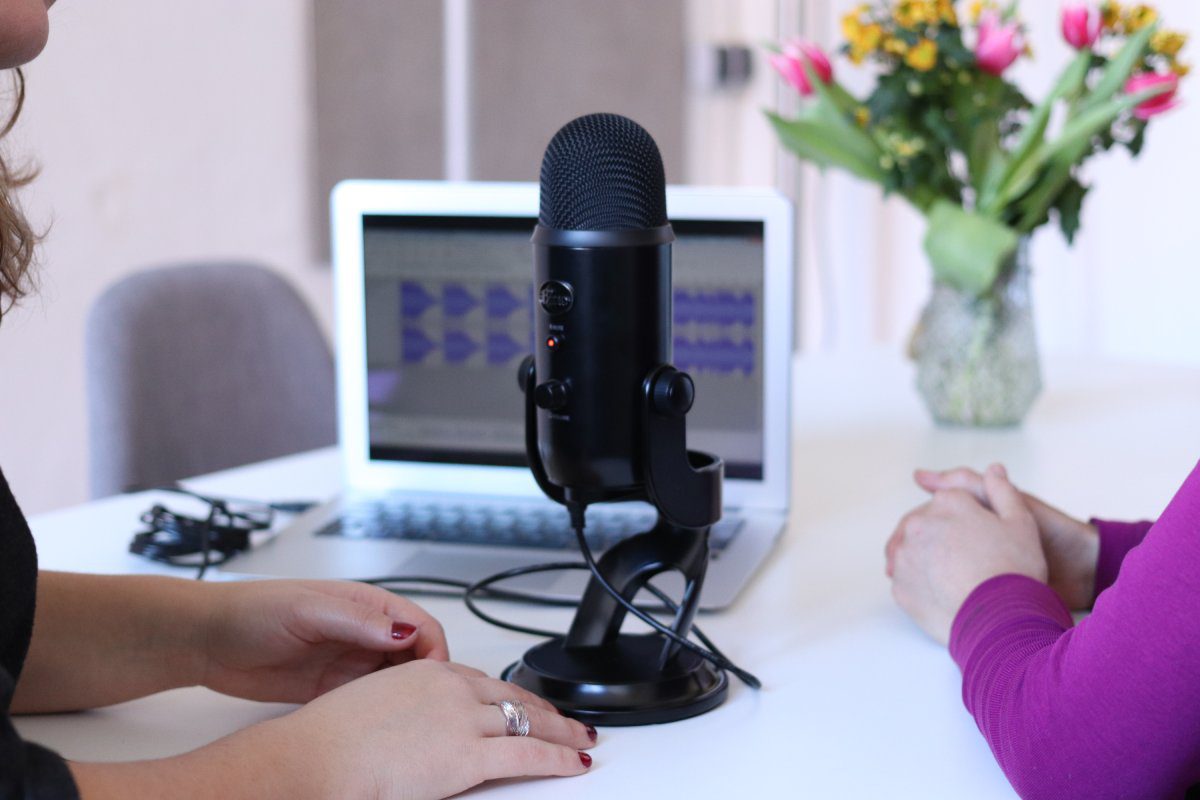
Being a marketer means constantly being on the lookout for the latest in marketing trends and news. You’ll be surprised how fast trends come and go, along with the tools that you commonly use for your campaigns. If you’re looking for a trend that never goes out of style, it’s podcasting. Here are the top marketing podcasts to tune in to in 2025:
1. Marketing School

Marketing School is hosted by one of the famous names in the marketing industry: Neil Patel. Eric Siu is also another popular figure hosting the show. They update listeners on the newest marketing and SEO trends and information. Plus, they interview content creators and marketers to share their marketing secrets and tips to achieve their goals. It’s a great starter podcast for new marketers in the field. Listen to the famous hosts every day!
2. Social Media Marketing Podcast

The Social Media Marketing Podcast should be your go-to podcast if you’re focused on social media marketing. Listen to Michael Stelzner weekly to get the best tips on marketing on social media with the latest tech and trends. If you’re also running out of content ideas, the podcast host also provides tips and insights to help you get started on new strategies. Plus, he interviews marketers and business leaders on how they achieved success with social media marketing.
3. The WARC Podcast

The WARC Podcast delivers marketing insights to help you know the latest in marketing for the week. You’ll learn what marketing challenges marketers overcame. Listen to them twice a week for recent trends, interviews, and event recaps.
4. Duct Tape Marketing

Another big name in the marketing sphere is Duct Tape Marketing, which made an impact in 2005. Listen to John Janstch three times a week to listen to interviews with small business owners and marketers, and how they grew their businesses through marketing strategies. Don’t miss out on the trends and tips to supercharge your marketing.
5. Perpetual Traffic

If you want tips from expert marketers Ralph Burns and Kasim Aslam, listen to Perpetual Traffic! They specialize in paid traffic tips to help you increase sales and leads! Expect interviews from various experts in different niches. You can also get insights from case studies to help you grow your business. Listen to them twice a week!
6. The Digital Marketing Podcast
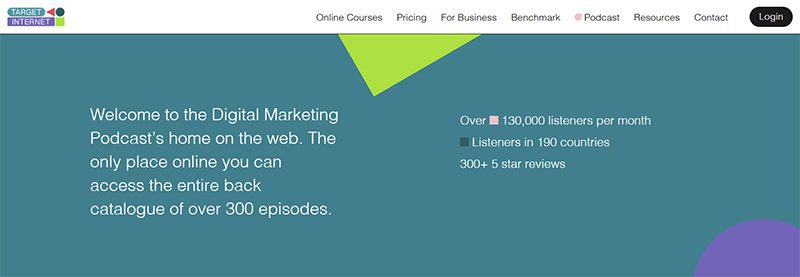
Do you want to be updated on everything digital marketing? The Digital Marketing Podcast is the best podcast to listen to. Know the latest news, updates, stats, and future of marketing. The hosts also discuss current tech trends in marketing to grow your business. Listen to the hosts twice a week!
7. The Affiliate Guy

Are you an affiliate marketer and need expert advice and the latest updates on affiliate marketing? You should listen to The Affiliate Guy. Hosted by Matt McWilliams, he has trained over 320,000 affiliates.
Think of The Affiliate Guy’s podcasts as engaging audio versions of How-To blogs. Additionally, he interviews entrepreneurs and leaders. Plus, he also references case studies to help you understand how they achieved their goals.
8. Marketing Trends

The very apt Marketing Trends podcast updates you weekly with new information and insights about marketing! You can listen to CEOs, CMOs, and other thought leaders share best practices and strategies to grow the biggest brands! Know how you can grow as a leader or an ambitious marketer when you get the latest tips for achieving success.
9. Stand The F*ck Out™

Are you tired of hearing or reading the same marketing tip or trend and don’t want to use that strategy anymore? Stand The F*ck Out™ gets straight to the point and doesn’t dilly dally when discussing marketing. Louis Grenier hosts the show and provides evergreen topics. You also get to hear from experienced marketers how their teams executed strategies and got the desired results. Listen to this podcast weekly.
10. Social Pros Podcast

Are you interested in learning how social media marketers execute their campaigns for big brands? The Social Pros Podcast should be on your radar. Jay and Adam host the show, which you can listen to weekly. Not only do they discuss recent trends and strategies, but they also discuss team management and other personal conversations on being a marketer.
11. Marketing Over Coffee

Do you prefer listening to podcasts in the morning during breakfast? Why not listen to Marketing Over Coffee on the side while enjoying a hearty morning meal? Like other podcasts, you’ll hear the latest tech trends like AI and improved marketing tools. Plus, get insights from the experts like Seth Godin, Rand Fishkin, and Ann Handley! Episodes come out weekly!
Lifestyle
What the Hell Was Magic Dirt? The Black Oxygen Organics Hoax
Published
4 months agoon
September 11, 2025
It has been years since we experienced the bizarre that was the pandemic, and yet, shady schemes still abound in the form of MLM (multilevel marketing) related to it. If you’ve ever heard or seen Magic Dirt, you’re not alone in wondering what it is all about.
While we’re now in the era of AI breakthroughs, space tourism, and wearable brain tech, some people still seem to be stuck in the horrid past. Sellers are peddling literal dirt as a miracle health product. Promoted mainly by anti-vax influencers and conspiracy circles, this dirt they call “wellness solution” was sold with pseudoscience, fear tactics, and a generous dose of misinformation.
And yes, it was an MLM. Because of course it was.
Here’s the breakdown of the Magic Dirt controversy—just one of many reasons why multi-level marketing schemes continue to be a red flag for anyone with a functioning sense of skepticism.
Planting The Seeds
It all began in May of 2021 when we were finally getting into the rhythm of our “new normal.” Of course, health was a significant topic of discussion in the media. It’s no surprise that many alternative medicines are gaining popularity on social media. It was during this month that a peculiar brand emerged on the scene. Depictions began circulating with smiling women slathering black mud on their faces, drinking jars of black liquid, and placing their babies’ feet in a tub of black water.
In the captions, they listed the numerous benefits of using this new “magic dirt.” And of course, the benefits varied from person to person. You might read one post that credits the dirt with curing her child’s low energy and constipation. Then you might scroll on to read another post claiming that it rejuvenates the skin while calming anxiety.
One thing these posts had in common was that they contained the hashtag #BOO while providing a shoutout to the company Black Oxygen Organics.
So, what does Black Oxgen Organics have to say about their “magic dirt”? As a brand, they described their product as,
“the end product and smallest particle of the decomposition of ancient, organic matter.”
Yeah, it’s purposely vague. In short, Magic Dirt is supposed to be a form of fulvic acid. This is a compound derived from the decayed plants of an Ontario peat bog. Sounds super rejuvenating, right?
To be fair, fulvic acid is shown to help with allergies and gastrointestinal function. But as with your average MLM, Black Magic Organics has exaggerated these benefits to the tenth power. They’ve taken these benefits and used them to sell 4.5 ounces of literal dirt, sealed in a fancy black bag and stamped with a $110 price tag. And if that didn’t feel like a slap in the face already, this stuff didn’t even come with free shipping!
Magic Dirt is claimed to be safe for anyone of any age. This includes your children and your pets. It’s been said to help heart health, brain function, and pretty much every common health problem in the world.
Of course, with it being 2021 and all, it started getting sent around to anti-vax and COVID-sceptical groups. Instead of seeking treatment for a deadly virus, people were mixing mud into their smoothies and calling it a day.
The Immediate Downfall
As Instagrammers and TikTokers promoted this “cure-all” product, an alarming number of women were eager to become direct sellers. For many, this company was their first introduction to the notorious Multi-Level-Marketing schemes.
That is, until the professionals got involved. You see, Magic Dirt was not at all FDA approved. And when health regulators from the U.S. and Canada became aware of its popularity, they conducted an investigation. They called for multiple product holds at the border, which in turn gave rise to an army of online skeptics.
And in typical MLM fashion, Black Oxygen Organics took their money and ran for the hills. Only about six months after its initial success, the company announced that it was officially shutting down. This sparked a significant backlash from online sellers. They grieved the end of miracle supplements, while also petitioning to recover the thousands they had invested in direct selling.
Unfortunately, most victims of these schemes will likely never recover their money.
The fact of the matter is that Black Oxygen Organics and similar companies are based on a scam. Period. That’s what everyone needs to remember, so they can avoid making the same mistakes as so many others. Always be vigilant for predatory companies.
The way the BetMGM Gambling establishment Bonus Compares to Almost every other Web based casinos
Support applications apparently provide broadening professionals, meaning the specific alot more your create, so it greater the advantages you get

What’s the Best On-Demand Graphic Design Service?

What’s the Best Design Agency in San Jose for Growing Brands?
Test post title
Test post title
Aztec Paradise United Kingdom: Unleashing the Thrill of Online Casino Games with Live Casino and Slots

Top 10 Video Marketing Agencies You Must Check Out in 2026

The Top 8 Webinar Platforms For Your Next Virtual Event or Demo

Maximizing ROI in 2026: The Top 10 Facebook Ads Strategy Ideas to Try

Top 10 App Development Software That Help Create Stunning Apps

What’s the Best Graphic Design Service for Ongoing Marketing?

What’s the Best Design Agency in Los Angeles?

What’s the Best Design Agency in Chicago
Trending
- Business5 days ago
Maximizing ROI in 2026: The Top 10 Facebook Ads Strategy Ideas to Try
- Technology5 days ago
Top 10 App Development Software That Help Create Stunning Apps
- Business4 days ago
What’s the Best Design Agency in Houston?
- Forex News5 days ago
Лучшие курсы валют в банках Беларуси на сегодня Belkurs com Курс доллара, евро, рубля, гривны, злотого.USD, EUR, RUB Все курсы валют в РБ на одном сайте.
- catspinscasino3 days ago
Casino ohne lizenz fake auszahlung 2025
- Uncategorized1 day ago
Penn Play Online Casino Online: A Comprehensive Guide
- Business16 hours ago
What’s the Best Design Agency in San Jose for Growing Brands?
- Uncategorized1 day ago
Aztec Paradise United Kingdom: Unleashing the Thrill of Online Casino Games with Live Casino and Slots
- Uncategorized1 day ago
Test post title
- Uncategorized1 day ago
Test post title





